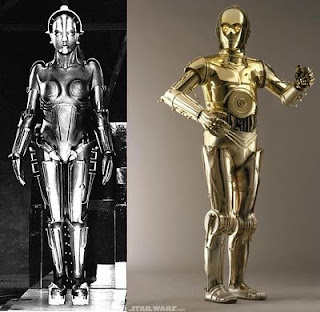BOOK REVIEW: CAMERA MAN – BUSTER KEATON, THE DAWN OF CINEMA, AND THE INVENTION OF THE TWENTIETH CENTURY BY DANA STEVENS
A MINOR SPOILER BOOK REVIEW:
CAMERA MAN – BUSTER KEATON, THE DAWN OF CINEMA, AND THE INVENTION OF THE TWENTIETH CENTURY by Dana Stevens
Three books on Buster Keaton reside in my personal library. The Complete Films of Buster Keaton by Jim Kline (1993), Buster Keaton – Tempest in a Flat Hat by Edward McPherson (2004), and now Camera Man – Buster Keaton, The Dawn of Cinema, and the Invention of the Twentieth Century by Dana Stevens (2022). Cline’s book is an excellent encyclopedia of Keaton’s work – an IMDB-type, must-have quick reference of Keaton’s vast work. McPherson is an outsider looking in on Keaton's work and fandom – which is quite fitting for a Buster Keaton-themed book, when you think about it. Each of Keaton's characters were always outsiders looking in. But Stevens. Stevens achieves something rare: a sincere retelling of Keaton’s life and filmography, sandwiched into an interesting premise…or an overall dissertation. Stevens takes us on a journey of the man born in the 19th century but propelled into the 20th century. That man not only travels along history, but makes it, shapes it, and changed how we see movies, marriage, and more. Moreover, Stevens is a fan that writes like a fan whose heart truly aches with the disappointments and struggles of Keaton. Yet, she does not let that cloud her retelling of the triumphs and failures Buster endured.
 |
| Me and Camera Man author Dana Stevens |
I picked up Camera Man at a Buster Keaton marathon with my 9-year-old son Henry. It was the first time Henry was seeing Buster Keaton films on the big screen…and the first time he ate popcorn in a movie theater. Stevens introduced three films of Keaton at the screening: my favorite Buster short One Week (1920), Henry’s new favorite Buster Keaton film The Playhouse (1921), and everyone Buster fan’s favorite Sherlock Jr. (1924). A bonus was seeing the films with live music accompaniment on a Wurlitzer played by Brett Miller, who got the original accompaniment music for Sherlock Jr. and crafted a true-to-first-screening accompaniment for the two shorts. Henry takes piano, so this was an extra perk, for sure!
 |
| My 9-year-old son Henry plays piano and was thrilled to meet the organist Brett Miller after the Buster Keaton movie marathon. |
Back to the book review: Stevens covers all of Keaton’s life with great detail, tons of research, and meaningful sidebars into Keaton's peers and mentors. She also touches upon a boatload of his films including the aforementioned favorites as well as Keaton films we’ve covered on Digging Star Wars including Seven Chances (1925), College (1927) and The Railrodder (1965).
The childhood days on the Vaudeville circuit are explored. Prominent silent film pioneers Roscoe “Fatty” Arbuckle and Charlie Chaplin are discussed in great length. Buster’s intro to film, rise to stardom, the great mistake of signing with MGM, failed marriages, battle with alcoholism, and the final, happy days of recognized genius – it’s all in here.
What really struck me is how structurally Stevens' book changes as you travel with Buster in the first half of the 20th Century. In the days of two reelers, her chapters are short and funny. The quagmire of MGM is retold in meandering chapters that you want to burn through quickly….but can’t. The struggles with bad marriages and drinking binges are long and painful to read, and Stevens lets you know that she feels the same way you do. But-but-but! Stevens finishes on a positive note with his late arriving salad days of marriage with a woman who truly cares for him. Plus, Stevens expertly touches upon the second coming of Buster in television, including this funny Candid Camera bit that was buried in the back of my mind and YouTube (thankfully!):
Camera Man had me smiling quite a bit as I read it. And, while I’m an old softy, I still must share that I was moved to tears with Stevens’ writing on the five-minute-long standing ovation Buster Keaton received just months before his death at the 1965 Venice Film Festival. Stevens retelling of that scene, and Buster’s words in response to the audience’s accolades, crushed me:
“This is the first time I’ve ever been invited to a film festival, I hope it won’t be the last.” (p. 381)
Yes, Buster fans: this is worth the read.
If you’re not a Buster Keaton fan, you should be. His work was incredible. Mind-blowing. Emotional. Influential. And very, very funny.
Thanks, Dana Stevens, for reminding me of that all over again.
Special thanks to Out of the Past blogger Raquel Stecher for hosting the 2022 Classic Film Reading Challenge. This post is, most likely, my final official entry. To join us in this fun summer endeavor, visit her blog for more details.
#classicfilmreading


I really enjoyed this biography and I agree with you that the author definitely takes us on a journey. And how cool that you got to meet the author! Thanks for your review.
ReplyDeleteThanks, Raquel. This was a great book to conclude my #summerfilmreading posts on. Thanks for reading, sharing on Twitter, the whole shebang.
Delete